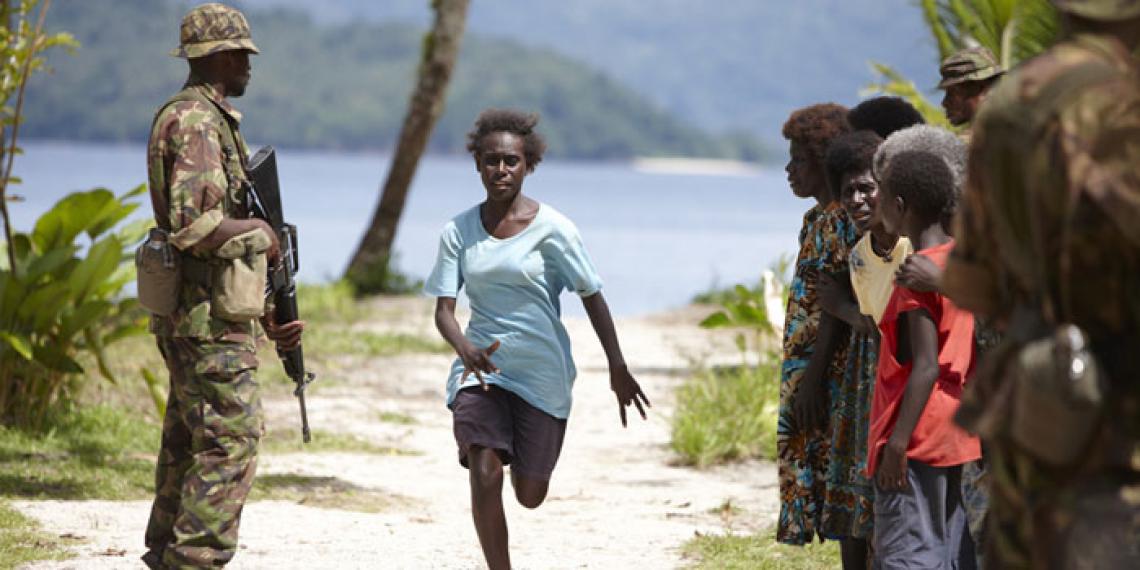You are here
Film review - Mr. Pip

New Zealand author Lloyd Jones's bestselling, Man Booker nominated novel finally gets the big screen in the dedicated hands of Oscar nominated director Kiwi Andrew Adamson.
Adamson (The Chronicles of Narnia, Shrek) directs Hugh Laurie in the story that is set amidst the violent civil war in Bougainville, Papua New Guinea in 1989.
Shattered by the war over copper mining, Bougainville's teachers have fled. Enter Mr. Watts (Hugh Laurie); an expatriate Brit, who’s recently come to Bougainville with his sickly native wife, Grace. He reopens the local school, and begins teaching the children- transfixing them with animated readings from Charles Dickens’ “Great Expectations”.
His readings have a profound effect on a local girl, Mathilda (Xzannjah), who imagines the character Pip (Eka Darville) as a local boy, whose story parallels her own. She is transported into the Victorian world, finding inspiration in it while her everyday life is filled with harsh uncertainty as the realities of the civil war come to her village.
Kiwi director Andrew Adamson has a gift for the fantastical, what with the huge success of the Shrek and Narnia films. With Mr. Pip, he shows sensitivity for epic, emotional drama too. Adamson cleverly illustrates Matilda’s thoughts with her own filtered ideal of the Dickensian world. Cue striking images of an island paradise transformed into a tropical version of London, Matilda and Pip in colourful finery. It’s exactly what you’d imagine her version of the story would be.
Matilda’s literary escape from her difficult life, assisted by a teacher who encourages her to read is the main crux of the story. However Matilda's mother insists that the students learn more than just Dickens- a sensible idea given the circumstances in Bougainville at the time.
However, Matilda ultimately doesn't treasure her ability to escape into Great Expectations because she longs for its beauty and drama, but because Pip's resilience and, as Mr. Watts explains it, his talent for reinvention gives her some measure of hope. That hope is evident in the story, but so is a great deal of pain.
If you are familiar with the book, then you know how the story develops and so the second half of the film is much darker and more brutal as the realities of war come home.
Adamson adapted and directed this tale in what became a complex task of balancing the various tones of its multi-faceted narrative. Following the film's initial outing at the Toronto film festival last year, he embraced the critical feedback and recrafted the resulting "finished film".
It’s good to see Papua New Guinea on the big screen, and Adamson, who spent his teenaged years there, offers a loving ode to its beauty and culture. The film-makers insisted that this is the local people's story, which had to be told by them, in their home; his trademark dedication has paid off. The rendering of Matilda's occasional reveries set against a story of brutal bloodshed is well handled by Adamson as he delivers shocking and moving moments in the tropical paradise.
But ultimately it’s the main performances that make the film. Laurie's performance is strong and understated, and Xzannjah plays Matilda with just the right curiosity and spark.
Review by Martin Barratt
Mr. Pip
Genre: Drama
Director: Andrew Adamson
Rating: M (violence)
Run time: 1 hour 55 mins